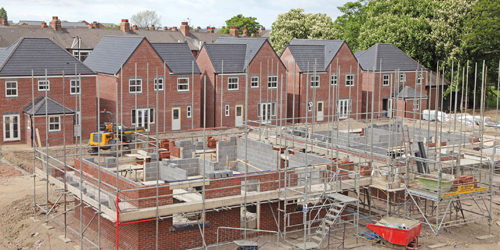
We all eagerly awaited to see what the Chancellor had in store for his “first and last” Autumn Statement.
There were certainly a few things on the wish lists of businesses and individuals alike, but the Chancellor set his sights on the ‘JAMs’ or the Just About Managing sector of society, where he aimed to improve living standards.
One of the ways the Chancellor hopes to achieve this is by simply building more affordable housing and as a way of meeting new housebuilding targets, the Chancellor announced an investment fund for more new low-cost homes. The new Fund, thought to be worth around £3bn, is administered by the Homes and Communities Agency (HCA) and is available to all house builders, both large and small, in the form of a loan for the development and infrastructure of housing.
Loans via the Home Building Fund are available on both a long and short-term basis, and are secured against property assets. It is hoped that by increasing the amount of housing available in the UK, the rental market will become more competitive, preventing sky-high rents. It would also improve the standard of living available, because if you increase the standard at the top, then other properties would be required to follow suit in order to maximise market rent.
This would have been very welcome news for tenants and perhaps for property investors too as they seek to make the most of this new gap in the market. In turn this would further increase demand for new-build properties, keeping house builders happy too. The announced ban on letting agents charging fees to tenants may not result in the intended savings benefitting tenants. Landlords may incur higher costs passed on by letting agents resulting in increased rents for tenants.
Elsewhere in the economy, the Chancellor also announced that he would be heavily investing in infrastructure, including HS2 and Heathrow Airport’s extra runway. There will also be funds for improved road and rail, and investment in the Hinkley Point power plant in Somerset. Furthermore, there will be an additional £2bn budget for research and development projects. Hopefully this will allow more businesses to make valuable R&D tax relief claims.
Whilst on the topic of tax, for individuals there was sadly very little to report, however, the new personal tax allowance from 6th April 2017 of £11,500, having increased from its current level of £11,000, should give some people a little extra help. In fact, a typical basic rate tax payer will pay around £1,000 less in tax each year than they did in 2010/2011, when the personal allowance was just £6,475.
If you have any questions about how the Autumn Statement may affect you, or if you would like to know anything further in relation to taxation advice or guidance, please contact your local Wilkins Kennedy representative in our Guildford and Egham offices.
www.wilkinskennedy.com






